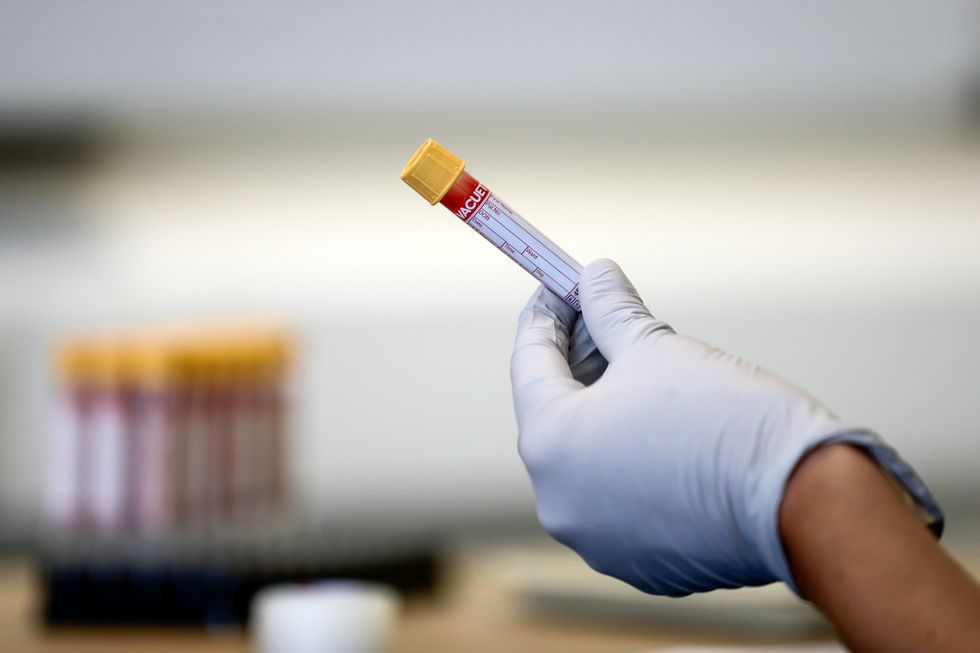Alzheimer’s breakthrough as new blood test checks could help diagnosis disease
Alastair Stewart discusses new figures showing dementia is the biggest killer in the UK
The breakthrough could transform how doctors diagnose the disease and track its advancement in patients experiencing memory and thinking problems
Don't Miss
Most Read
Latest
Researchers have developed a new blood test that can detect Alzheimer's disease and monitor its progression by measuring specific tau protein fragments in the blood.
The test identifies fragments called eMTBR-tau243, which correlate with the build-up of tau tangles in the brains of people with Alzheimer's.
This breakthrough could transform how doctors diagnose the disease and track its advancement in patients experiencing memory and thinking problems.
The research, published in the journal Nature Medicine, involved 902 participants and found that levels of the tau fragment were elevated in people with Alzheimer's symptoms who had mild cognitive impairment.

This breakthrough could transform how doctors diagnose the disease
GettyThese levels were even higher in those with dementia, according to the team led by Prof Oskar Hansson from Lund University.
Importantly, the levels were not raised in people with cognitive impairments due to other conditions, making the test potentially valuable for differential diagnosis.
The test could help doctors determine which patients might benefit from newly approved drugs that target Alzheimer's progression.
Prof Oskar Hansson, co-author of the work, said: "There is an urgent need for accurate and cost-effective Alzheimer diagnostics considering that many countries have recently approved the clinical use of amyloid-targeted therapies [such as donanemab and lecanemab]."
HEALTH LATEST:
These medications can slow disease progression, but are only effective in people during early stages of Alzheimer's.
Prof Tara Spires-Jones, a neurodegeneration expert at the University of Edinburgh who was not involved in the work, described the results as "very promising and important".
She noted that "this marker performed better than existing tests and the new marker could help track performance of new drugs in trials".
However, she cautioned that it is "not a foolproof blood test for Alzheimer's".
The test requires "complex scientific methods only available in specialist laboratories", limiting its immediate routine availability.
Dr Sheona Scales, head of research at Alzheimer's Research UK, highlighted that eMTBR-tau243 is one of several biomarkers being studied for Alzheimer's blood tests.

Researchers have developed a new blood test that can detect Alzheimer's disease
PA"What's interesting is that the blood levels of eMTBR-tau243 seem to be linked to a person's memory and thinking abilities," she said.
Such tests could help monitor disease progression in the brain and potentially inform prognosis in future, addressing a current gap in connecting observed tangles with cognitive impairment.
Another study published in Nature Medicine revealed that the ratio of two proteins found at neuronal junctions - YWHAG and NPTX2 - can indicate cognitive problems in Alzheimer's patients.
This research, involving samples from 3,397 people across three countries, found this protein ratio better indicated cognitive problems than amyloid beta and tau levels.
Prof Tony Wyss-Coray from Stanford University said the results could help identify suitable medications and improve clinical trial design.













